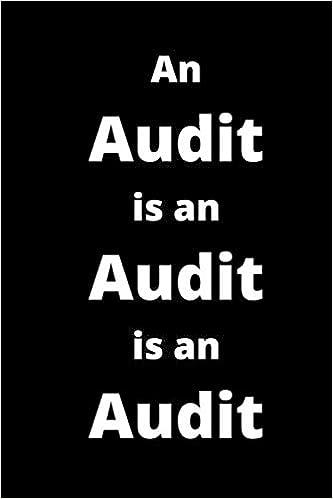Question
On January 1, year 1, Dave received 1,250 shares of restricted stock from his employer, RRK Corporation. On that date, the stock price was $27
On January 1, year 1, Dave received 1,250 shares of restricted stock from his employer, RRK Corporation. On that date, the stock price was $27 per share. On receiving the restricted stock, Dave made the 83(b) election. Daves restricted shares will vest at the end of year 2. He intends to hold the shares until the end of year 4 when he intends to sell them to help fund the purchase of a new home. Dave predicts the share price of RRK will be $31 per share when his shares vest and will be $44 per share when he sells them. Assume that Daves price predictions are correct and answer the following questions: (Leave no answers blank. Enter zero if applicable. Round your final answer to the nearest whole dollar value. Enter all amounts as positive values.)
a. If Daves stock price predictions are correct, What are Daves taxes due if his ordinary marginal rate is 32 percent and his long-term capital gains rate is 15 percent?
On January 1, year 1, Dave received 1,250 shares of restricted stock from his employer, RRK Corporation. On that date, the stock price was $27 per share. On receiving the restricted stock, Dave made the 83(b) election. Daves restricted shares will vest at the end of year 2. He intends to hold the shares until the end of year 4 when he intends to sell them to help fund the purchase of a new home. Dave predicts the share price of RRK will be $31 per share when his shares vest and will be $44 per share when he sells them. Assume that Daves price predictions are correct and answer the following questions: (Leave no answers blank. Enter zero if applicable. Round your final answer to the nearest whole dollar value. Enter all amounts as positive values.)
b. If Daves stock price predictions are correct, What are the tax consequences of these transactions to RRK if its marginal rate is 21 percent?
LaMont works for a company in downtown Chicago. The company encourages employees to use public transportation (to save the environment) by providing them with transit passes at a cost of $275 per month. a. If LaMont receives one pass (worth $275) each month, how much of this benefit must he include in his gross income each year?
Step by Step Solution
There are 3 Steps involved in it
Step: 1

Get Instant Access to Expert-Tailored Solutions
See step-by-step solutions with expert insights and AI powered tools for academic success
Step: 2

Step: 3

Ace Your Homework with AI
Get the answers you need in no time with our AI-driven, step-by-step assistance
Get Started


